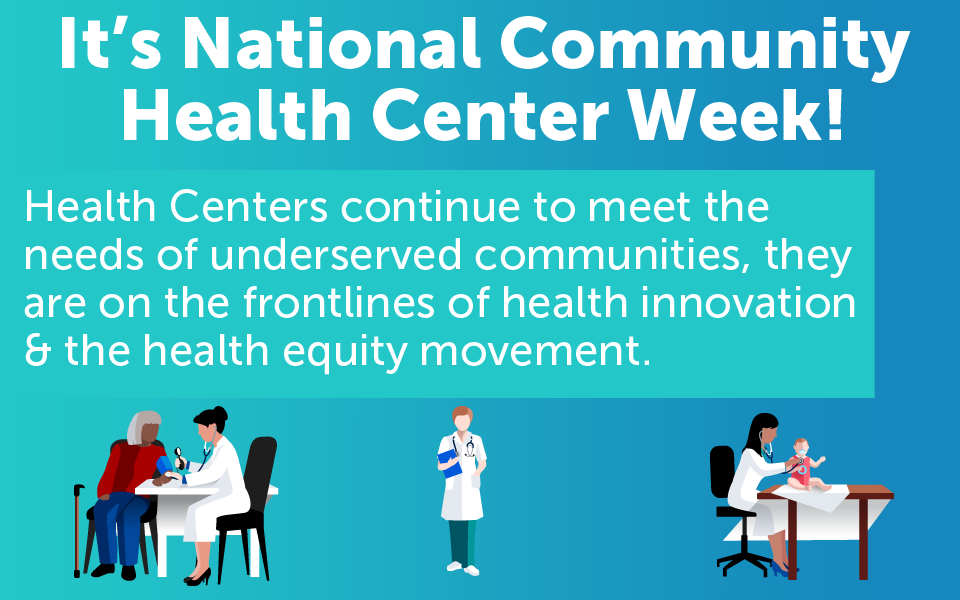A Deeper Look at the Critical Role of Community Health Centers in Advocacy
This week is National Health Center Week, but here at Community Catalyst we celebrate the impact of community health centers 52 weeks a year. Community health centers have traditionally been the primary source of care for underserved populations with the greatest health needs. They are at the forefront of providing culturally and linguistically competent services and have worked hard to win the trust of their diverse patient base. Many health centers have illustrated their commitment to health equity and their standing as trusted community touchpoints through their engagement in advocacy—including efforts to close the Medicaid coverage gap and the promotion of policies that improve health coverage for recent immigrant children.
Oftentimes low-income consumers realize they are ineligible for Medicaid coverage during their visits at community health centers. This link, along with a commitment to expanding health coverage for their patients, motivates community health centers and statewide health center organizations to participate in advocacy to close the coverage gap.
Community Health Centers Help Close the Gap
For example, the North Carolina Community Health Center Association has been a key part of the campaign to close the coverage gap in North Carolina for more than two years. With 357,000 North Carolinians stuck in the gap, putting a human face to the issue of health care access is critical. Through the Association, health advocates have connected with health centers, which have successfully leveraged relationships with local communities to aid story collection from consumers in the coverage gap as well as health care providers who typically see uninsured patients.
Over time, health centers and advocates have developed more effective ways of working together on story collection. North Carolina health advocates favor informal conversations with consumers and providers in the health center break rooms rather than formal sit-downs. Collecting stories this way creates fewer logistical burdens for staff and the more relaxed, comfortable environment lends itself to deeper conversations. These systems are made possible by the mutual partnership and trust developed between health advocates and health centers.
In Florida, health advocates working on closing the coverage gap have utilized similar partnerships with the Florida Association of Community Health Centers, Florida Council for Community Mental Health, and Florida Rural Health Association to collect stories for their “Lives on the Line” initiative, which features stories and photos of Florida consumers in the coverage gap. Advocates were able to collect photos and stories of people in the gap by setting up pop-up booths outside of community health centers in target areas across the state. The launch of the “Lives on the Line” website and social media activities featuring consumer stories brought renewed energy into Florida’s Close the Gap campaign while also serving to re-engage community health centers partners.
Community Health Centers are on the ‘Frontlines’ of Advocacy
The relationships Florida advocates built with health centers over the course of their multi-year Close the Gap campaign paved the way for story collection efforts focused on the KidCare Immigrant bill, which lifted the five-year waiting period for legal immigrant children to receive health coverage under Medicaid and the Children’s Health Insurance Program (CHIP). Advocates leveraged existing relationships with community health centers in predominantly Latino and immigrant communities to identify and collect compelling stories of the 17,000 immigrant children and their families that would be impacted by this policy. In part due to the humanization of the issue through personal storytelling, the bill was signed into law by Governor Scott in March 2016.
Participation in story collection for advocacy campaigns is just one way that community health centers engage on the ground with issues that affect the health of their client base. This National Health Center Week reminds us of how grateful we are for the important work and partnerships community health centers bring to health advocacy.
—
We are encouraging everyone to participate in National Health Center Week 2016. To learn how you can be a part of it, please visit their page: National Health Center Week 2016 – Social Media Tools.
